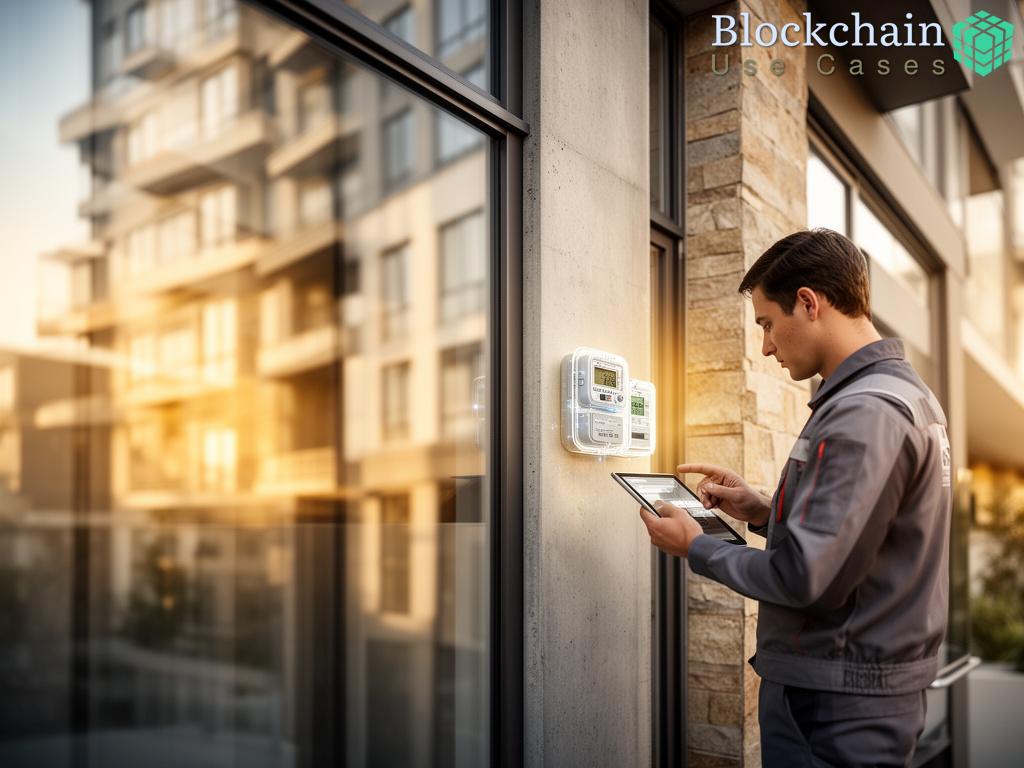Blockchain Technology in Real Estate Transactions
Revolutionizing Property Ownership
Blockchain technology is poised to transform the way real estate transactions occur, enhancing transparency and security while reducing costs and fraud. By utilizing a decentralized ledger, all parties involved in a property transaction can access the same information in real-time, ensuring that the data is accurate and immutable. This shift is particularly significant in an industry where trust is paramount, and disputes over ownership and transactions often arise.
Streamlining Processes with Smart Contracts
One of the most promising applications of blockchain in real estate is the use of smart contracts. These self-executing contracts with the terms of the agreement directly written into code allow for automatic execution of transactions once predetermined conditions are met. This innovation not only expedites the closing process but also minimizes the need for intermediaries, such as lawyers and escrow agents, thereby reducing transaction costs.
Here are some key benefits of implementing smart contracts in real estate:
- Increased Efficiency: Transactions can be completed faster as the need for extensive paperwork is eliminated.
- Enhanced Security: The use of cryptographic signatures ensures that only authorized parties can access sensitive information.
- Cost Reduction: By minimizing intermediaries, buyers and sellers can save significantly on fees.
- Transparency: All transactions are recorded on the blockchain, providing a clear and verifiable history of ownership.
Transforming Market Dynamics and Forecasting
Beyond individual transactions, blockchain technology is set to influence broader market dynamics and forecasting in real estate. By providing greater access to data, blockchain can enhance market analysis, enabling more accurate predictions of trends and property values. Investors, developers, and analysts can leverage this data to make informed decisions, ultimately leading to more stable and resilient markets.
| Aspect | Traditional Method | Blockchain Method |
|---|---|---|
| Data Accessibility | Limited Access | Decentralized Access |
| Transaction Time | Days to Weeks | Minutes to Hours |
| Cost | High Transaction Fees | Reduced Fees |
| Fraud Risk | High | Low |
In conclusion, as the real estate sector embraces blockchain technology, the landscape of property transactions and market forecasting is likely to undergo a significant transformation, paving the way for a more efficient and reliable real estate ecosystem.
Enhancing Market Transparency through Blockchain
The introduction of blockchain technology into the real estate sector heralds a new era of transparency that could reshape how market participants view property transactions. By ensuring that data is accessible, accurate, and immutable, blockchain mitigates longstanding issues of trust and verification. This enhanced transparency not only benefits individual buyers and sellers but also strengthens the overall market dynamics, paving the way for informed decision-making and investment strategies.
Building Trust through Immutable Data
Blockchain’s decentralized ledger system ensures that once information is recorded, it cannot be altered or deleted without consensus from the network. This characteristic is crucial in a market historically plagued by disputes over ownership and valuation. With blockchain, every transaction is logged in a public, tamper-proof manner, fostering trust among stakeholders.
Empowering Stakeholders with Real-Time Insights
Access to real-time data is a game-changer in the real estate sphere. Blockchain technology allows for the seamless sharing of information among all parties, from buyers and sellers to lenders and real estate agents. This transparency enables stakeholders to make timely, data-driven decisions, which is particularly beneficial in fast-moving markets.
Advantages of Enhanced Transparency
Here are some key benefits that arise from the increased transparency brought about by blockchain technology in real estate:
- Improved Market Confidence: Stakeholders can trust the validity of transactions, leading to higher levels of engagement.
- Reduced Risk of Fraud: Immutable records significantly lower the chances of fraudulent activities, protecting both buyers and sellers.
- Better Market Analytics: With comprehensive and accurate data available, analysts can forecast trends with greater precision and reliability.
As the real estate market continues to evolve, the integration of blockchain technology will undoubtedly play a pivotal role in enhancing transparency and trust, ultimately leading to a more stable and prosperous environment for all participants.
Predictive Analytics and Blockchain Integration
The integration of predictive analytics with blockchain technology is beginning to redefine the landscape of real estate market forecasting. In an industry where accuracy and timely insights are crucial, the combination of these two powerful tools offers a promising avenue for stakeholders to anticipate market shifts and make informed decisions. Predictive analytics analyzes historical data to identify patterns and trends, while blockchain ensures that this data is trustworthy, accurate, and readily accessible. Together, they form a robust framework that enhances the reliability of market forecasts.
Unveiling New Insights with Data Integrity
One of the most significant advantages of utilizing blockchain in predictive analytics is the assurance of data integrity. Traditional data sources can often be manipulated or misrepresented, leading to unreliable forecasts that can misguide investors and developers. However, blockchain’s immutable ledger guarantees that the data used in predictive models is both authentic and consistent. This reliability allows analysts to craft models that not only reflect historical trends but also predict future market movements with greater confidence.
Real-Time Data for Dynamic Analysis
The rapid pace of change in the real estate market necessitates the use of real-time data for accurate trend analysis. Blockchain technology facilitates the continuous collection and updating of data, enabling predictive analytics to operate on the most current information available. This dynamic approach ensures that forecasts are not only based on historical data but are also responsive to ongoing market changes, allowing stakeholders to adapt swiftly to emerging trends. As a result, investors can identify lucrative opportunities more effectively, while developers can align their projects with market demands.
Enhanced Decision-Making through Visualization
Moreover, the synergy between blockchain and predictive analytics enhances decision-making processes through advanced data visualization techniques. By leveraging blockchain’s transparent data structure, analysts can create comprehensive visual representations of market trends, allowing stakeholders to grasp complex information quickly. These visual tools enable investors to identify risk factors and growth areas, thus fostering a more strategic approach to investment and development. This capability is particularly valuable in an environment where rapid decision-making can significantly impact profitability.
In summary, the convergence of predictive analytics and blockchain technology presents a transformative opportunity for the real estate market. By ensuring data integrity, providing real-time insights, and enhancing visualization capabilities, this integration not only improves forecasting accuracy but also empowers stakeholders to navigate the complexities of the market with confidence. As the industry continues to evolve, embracing these innovations will be paramount for those looking to stay ahead of the curve.
Tokenization of Real Estate Assets
The tokenization of real estate assets is emerging as a groundbreaking application of blockchain technology, reshaping the investment landscape and providing unprecedented opportunities for both investors and property owners. By converting physical properties into digital tokens on a blockchain, real estate can be fractionally owned and easily traded, thus enhancing liquidity in a traditionally illiquid market. This innovative approach is not only democratizing access to real estate investments but also streamlining the processes involved in property transactions.
Unlocking Liquidity through Digital Tokens
Traditionally, investing in real estate has been limited to affluent individuals or institutional investors who can afford to purchase entire properties. Tokenization addresses this barrier by allowing assets to be divided into smaller, tradable tokens that represent ownership stakes. This means that a property valued at a million dollars can be tokenized into 1,000 tokens, each worth $1,000, enabling a broader range of investors to participate in the market. Tokenization fosters liquidity by facilitating quicker transactions, as these digital tokens can be exchanged on blockchain-based platforms without the lengthy processes typically associated with real estate deals.
Streamlining Ownership Transfer and Reducing Costs
The implementation of tokenization also simplifies the ownership transfer process significantly. In a conventional real estate transaction, multiple intermediaries, including brokers, lawyers, and title companies, are involved, leading to increased costs and prolonged closing times. However, tokenization allows for the ownership rights to be transferred seamlessly through smart contracts, further minimizing the role of intermediaries. This not only accelerates the transaction timeline but also reduces the associated fees, making real estate investments more accessible and cost-effective.
Enhancing Transparency and Security
The incorporation of blockchain in the tokenization process enhances the transparency and security of real estate transactions. Each transaction is recorded on a public ledger, ensuring that all ownership histories are verifiable and tamper-proof. This level of transparency mitigates the risks of fraud and disputes over ownership, fostering greater confidence among investors. Moreover, the use of cryptographic security measures protects sensitive information, ensuring that only authorized parties can access critical transaction data.
| Aspect | Traditional Real Estate Investment | Tokenized Real Estate Investment |
|---|---|---|
| Liquidity | Low | High |
| Transaction Time | Days to Weeks | Minutes to Hours |
| Investment Minimum | High | Low |
| Access | Limited | Widespread |
| Transparency | Variable | High |
As the real estate sector continues to evolve, the tokenization of assets through blockchain technology stands out as a transformative approach that enhances market forecasting and trend analysis. By facilitating fractional ownership, streamlining transactions, and ensuring transparency, tokenization not only empowers investors but also contributes to a more agile and resilient real estate market.
Smart Contracts and Their Role in Market Efficiency
The advent of blockchain technology has revolutionized various sectors, with real estate being one of the most significantly impacted. Within this transformative landscape, smart contracts are emerging as pivotal tools that enhance market efficiency, streamline operations, and provide invaluable insights for forecasting and trend analysis. By automating and securing transactional processes, smart contracts not only reduce the time and costs associated with property transactions but also create a more transparent and reliable market environment.
Streamlining Transactions: A New Paradigm
At the core of smart contracts is their ability to facilitate automated transactions without the need for intermediaries. This automation plays a crucial role in expediting real estate transactions, as traditional processes often involve cumbersome paperwork and prolonged timelines. With smart contracts, once the predefined conditions are met, the execution of the contract is triggered automatically, resulting in a swift transfer of ownership. For instance, a property sale can be finalized in mere minutes rather than the typical days or weeks, thus significantly enhancing market efficiency.
Enhancing Data Accuracy and Accessibility
Moreover, smart contracts contribute to data integrity and accessibility, which are vital for accurate market forecasting. The blockchain’s immutable ledger ensures that all contract terms and transaction histories are recorded transparently and cannot be altered. This reliability means that analysts can trust the data they are using to predict market trends and behaviors. Access to real-time data allows stakeholders to make informed decisions based on the most current information available, further influencing the accuracy of market predictions. As a result, investors can better identify upcoming opportunities and potential risks, aligning their strategies with actual market conditions.
| Aspect | Traditional Transactions | Smart Contract Transactions |
|---|---|---|
| Transaction Time | Days to Weeks | Minutes to Hours |
| Cost of Intermediaries | High | Minimal |
| Data Reliability | Variable | High |
In conclusion, the integration of smart contracts in the real estate market represents a significant leap toward greater efficiency and reliability. As these contracts continue to gain traction, their impact on market dynamics and forecasting will undoubtedly shape the future of real estate transactions, making them faster, more secure, and far more transparent.





